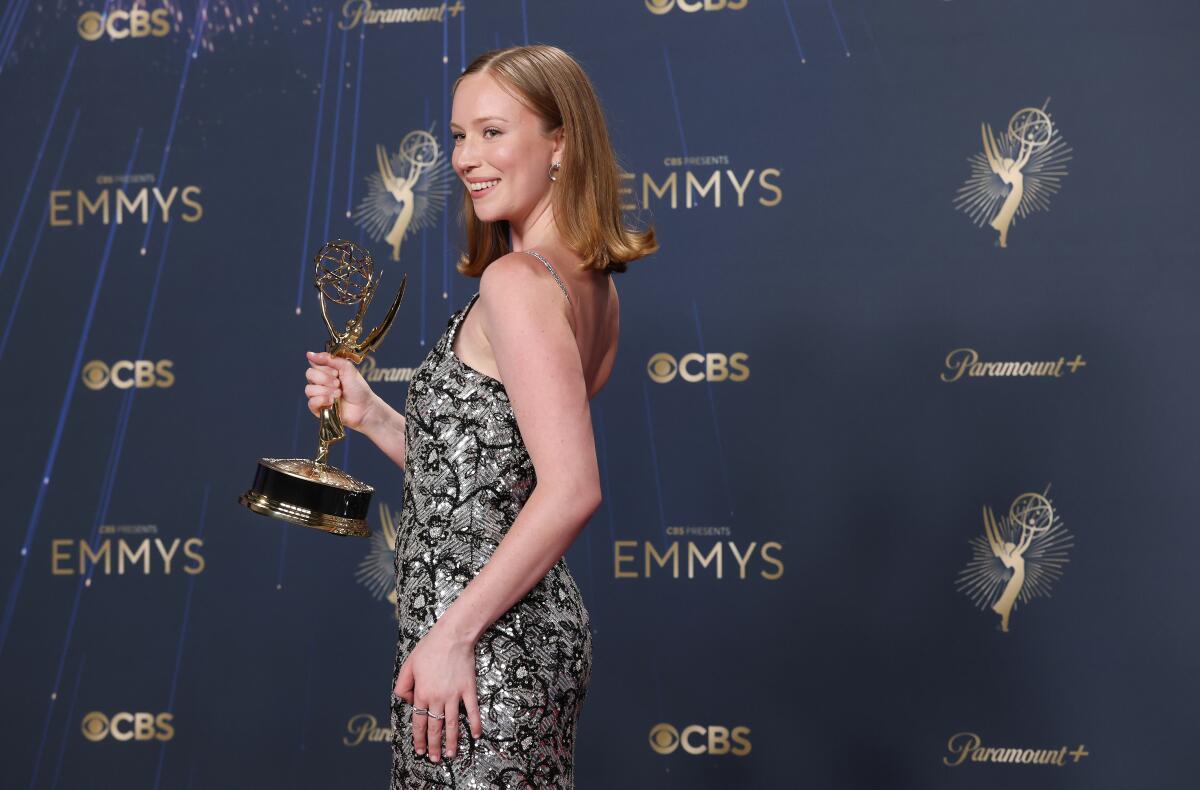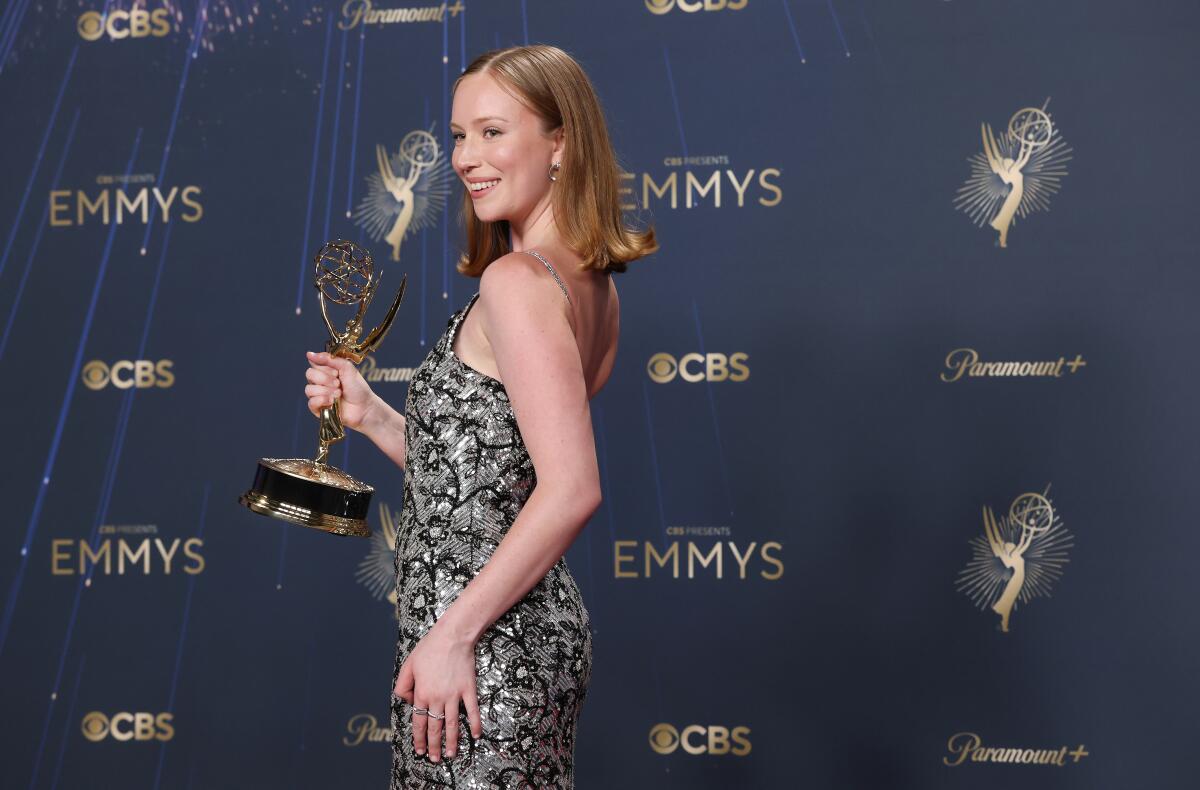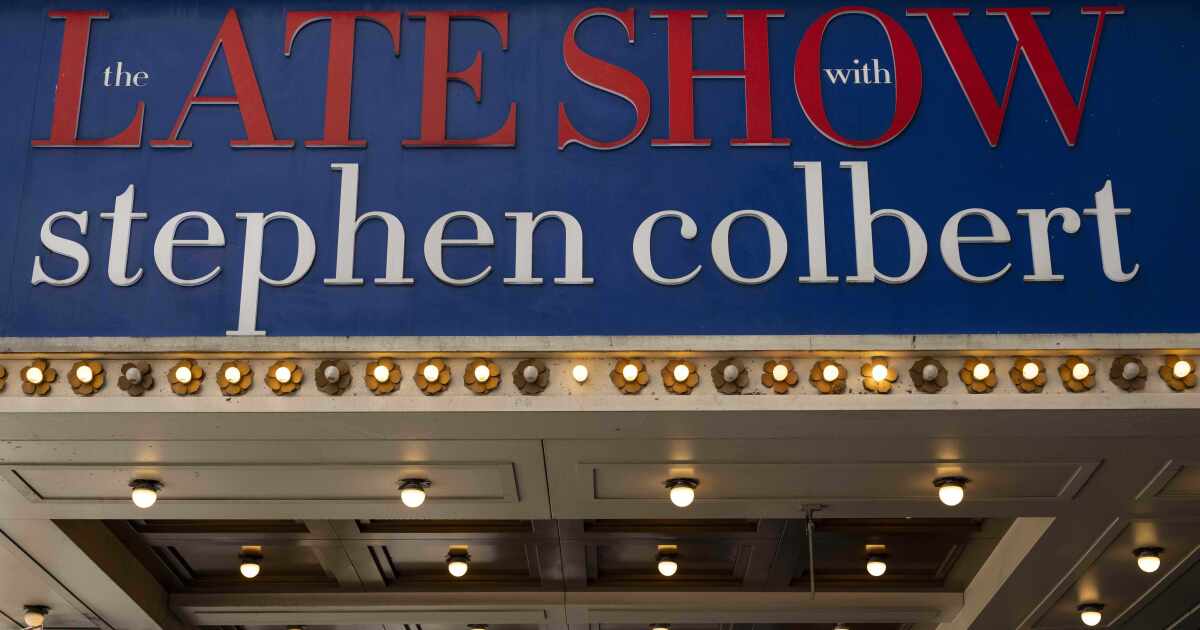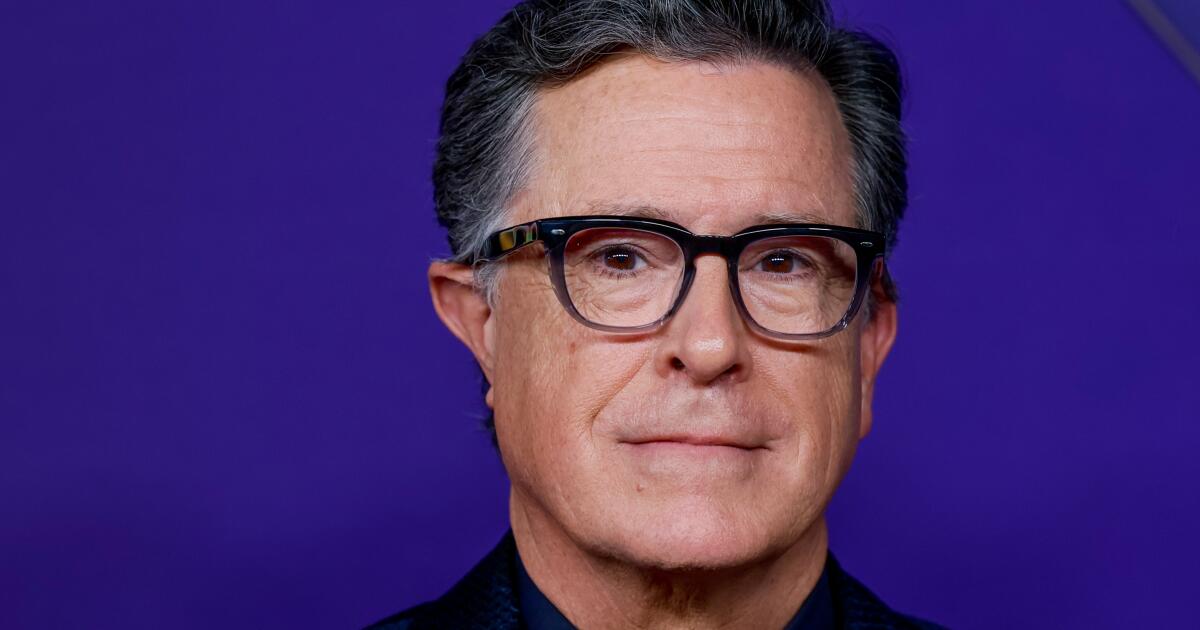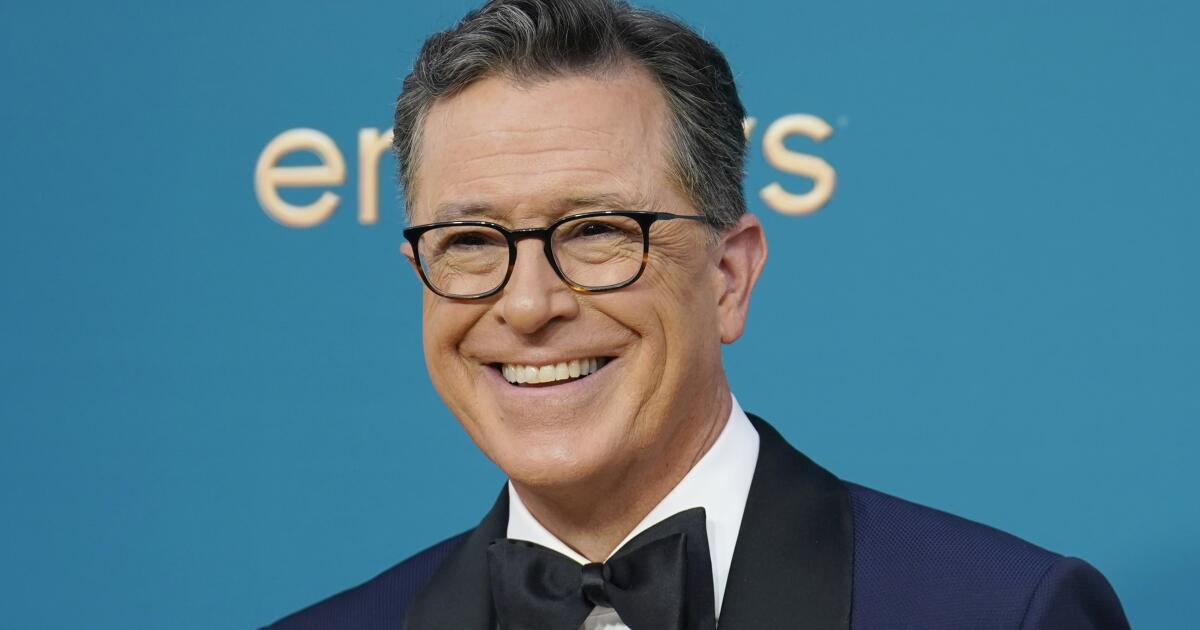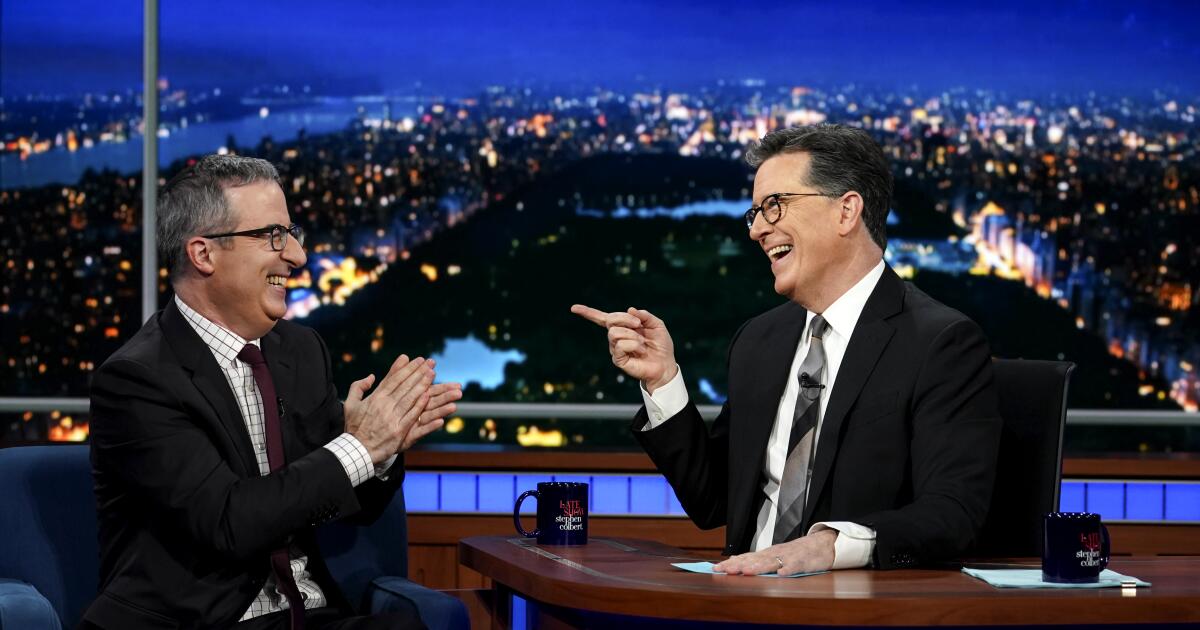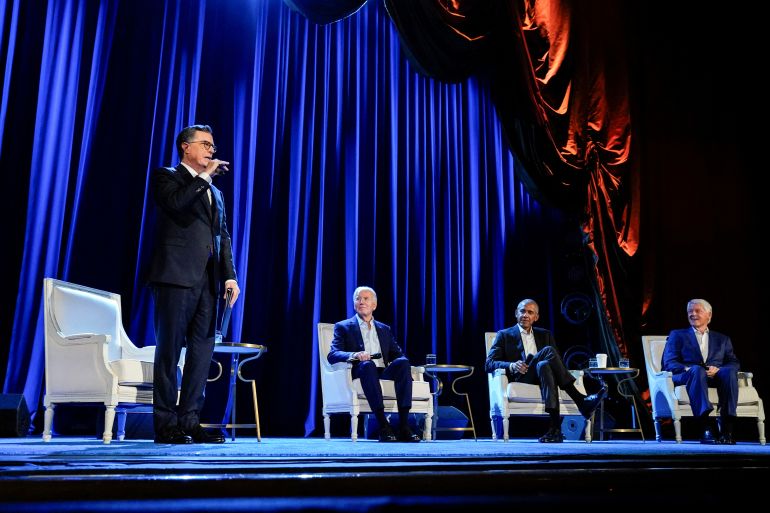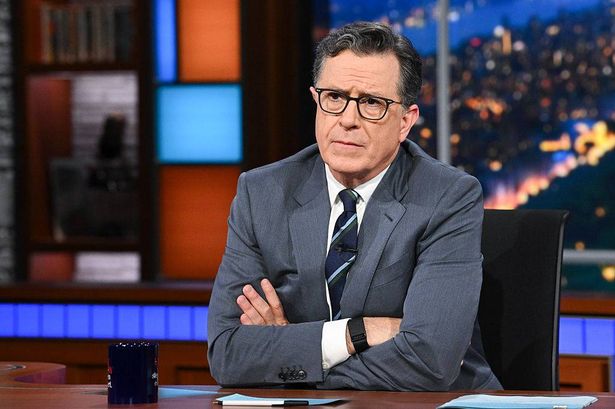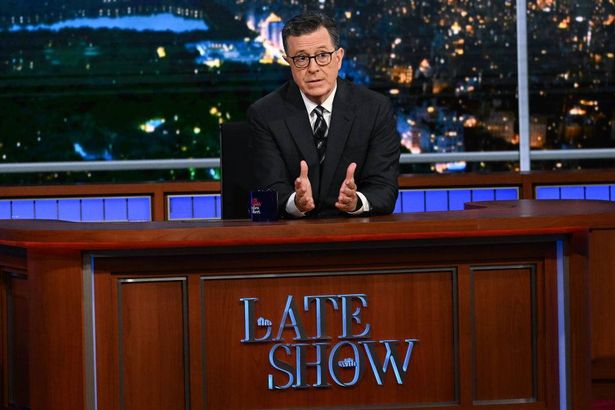The shocking cancellation of “The Late Show With Stephen Colbert” is a sign that time is running out for one of TV’s most beloved formats.
The late-night talk show was invented in the 1950s as a way for networks to own their own programming rather than have it provided by sponsors. Now, amid shrinking audiences and a politically turbulent climate for free speech, the familiar desk-and-sofa tableau is in serious trouble.
CBS announced Thursday that the upcoming 2025-26 TV season for “The Late Show” will be its last. Executives blamed the cancellation on financial concerns felt across all network late-night shows. Last year, NBC cut “The Tonight Show Starring Jimmy Fallon” to four nights a week while “Late Night With Seth Meyers” cut its live band.
Still, industry veterans were bewildered by the timing.
It’s hard to imagine Paramount Global executives did not anticipate blowback from announcing the move days after Colbert blasted the company’s $16-million settlement with President Trump over CBS News’ “60 Minutes” interview with Kamala Harris. Colbert described the deal as a bribe during his Monday monologue.
Every move the company makes is now under a microscope as it tries to get the Federal Communications Commission, led by Trump acolyte Brendan Carr, to approve an $8-billion merger with Skydance Media. Canceling the most watched late-night program hosted by one of Trump’s harshest critics will draw even more scrutiny.
Sen. Adam Schiff (D-Calif.), weighed in on X shortly after taping an interview on Colbert’s program.
“If Paramount and CBS ended the Late Show for political reasons, the public deserves to know. And deserves better,” Schiff posted.
The Writers Guild of America also raised questions, saying the cancellation appeared to be a case of “sacrificing free speech to curry favor with the Trump Administration.”
One factor contradicting the theory is that Colbert, who has another year on his contract, will remain on the air through May. His commentaries have never been restrained by network executives over his 10-year run and that situation is not expected to change in his final season.
The poor optics may be a matter of contractual timing.
Paramount Global had to complete the deals with writer-producer teams in July for the upcoming “Late Show” season, according to a person familiar with the discussions who was not authorized to comment.
Those deals typically run for a full year, but with the company’s intention to cancel the program — decided several months ago — the contracts being offered only ran through May, which tipped off the network’s plans.
When Colbert learned of the cancellation decision on Wednesday, he made the call to inform his staff and his audience the next day.
“Late Show” is said to be losing somewhere in the tens of millions of dollars a year as younger viewers have fled. Since 2022, the program has lost 20% of its audience in the advertiser-coveted 18-to-49 age group, according to Nielsen data.
Ad revenue for “Late Show” in 2024 was $57.7 million, according to iSpot.tv, down from $75.7 million in 2022. “The Tonight Show Starring Jimmy Fallon” on NBC and “Jimmy Kimmel Live!” on ABC have also seen significant declines over that period.
CBS has already given up on one hour of late night due to financial pressure. Two years ago, it canceled its 12:35 a.m. “Late Late Show” program hosted by James Corden because it was losing money.
CBS came up with a lower-cost replacement with “After Midnight,” but that ended after two seasons as its host Taylor Tomlinson decided not to renew her deal. CBS is replacing it with a syndicated program, “Comics Unleashed,” from Byron Allen’s Entertainment Partners in an arrangement that will cost the network nothing.
Still, Paramount Global will find itself facing questions about why CBS did not seek ways to reduce the production costs of the program instead of just pulling the plug.
If CBS decides to continue programming the 11:30 p.m. slot, it will hard-pressed to approach the same audience levels that Colbert attracted.
CBS is giving up a popular culture touchstone, although in the current fragmented media landscape, the days of such hosts having massive sway over a large audience have passed.
Media analyst Rich Greenfield wrote that legacy media companies investing in expensive original programming outside of sports and news may be ill-advised as viewers continue to flock to streaming.
“Ending ‘The Late Show’ is the tip of the iceberg with massive programming and personnel cuts to come,” he said.
For decades, late-night TV served as the brand identity of the broadcast networks.
Jack Paar was the witty conversationalist that made Middle America feel like it was invited to a sophisticated Manhattan cocktail party. His successor, Johnny Carson, became a trendsetter in the 1960s, defining male coolness. He had his own clothing line. His dry monologue was often a gauge of the country’s political mood. An invitation to take a seat next to Carson after a stand-up set turbocharged the careers of many top comedians.
CBS was unable to compete with Carson for decades, trying and failing with the likes of Merv Griffin and Pat Sajak. When David Letterman became available after he was bypassed for the “Tonight” job at NBC, he came to CBS in 1993 and made the network a serious contender.
Letterman’s offbeat, sardonic brand of humor also gave a layer of hipness to CBS, which had long had a reputation for stodginess.
“Late Show With David Letterman” helped make late-night network TV a financial bonanza. While the proliferation of cable networks was cutting into audience share in the 1990s and early 2000s, the late-night habit still thrived, especially with its ability to reach young men, the most elusive demographic for TV advertisers.
As a result, late-night hosts became the highest-paid stars in the business. Letterman and Jay Leno were both earning in the neighborhood of $30 million a year until networks started trimming salaries 10 years ago.
But technology chipped away at the late-night talk show habit. When DVRs reached critical mass, consumers started to catch up with their favorite prime-time shows during the late-night hours.
The most painful blow came from social media. While online clips of the late-night shows draw hundreds of millions of viewing minutes, that doesn’t generate the same kind of ad revenue as TV. They also make showing up at 11:35 p.m. every night pointless.
“The networks cut up all of the best parts of the show, and by the end of the night you can see all of them on social media,” said one former network executive who oversaw late-night programs. “There’s no reason to even DVR it.”
Prime-time programs add millions of viewers through on-demand streaming after they air on the broadcast networks. Topical late-night shows don’t have the same shelf life.
While politics have long been an important element of late-night comedy, the emergence of Trump‘s political career in 2015 — and his ability to drive ratings and the national conversation — made him the dominant topic.
Where Carson, Letterman and Leno skewered both sides of the political spectrum, Trump’s ability to provide endless comedy fodder on a daily basis made him an easy, entertaining and ultimately one-sided target.
For years it worked. Ratings for Colbert — who made his bones on Comedy Central satirizing a reactionary talk show host — languished for the first two years after he replaced Letterman. Audience levels and ad rates surged in 2017 once Trump came into office and became Colbert’s muse.
But the country has become more politically polarized in recent years and the relentless lampooning of Trump has created a lane for “Gutfeld!,” a nightly Fox News talk show with a conservative bent.
While not technically a late-night show (it airs at 10 p.m. Eastern), “Gutfeld!” drew an average of 3 million viewers in the second quarter of 2025 according to Nielsen and has grown 20% since 2022.
The young men that used to make late night an advertiser magnet are now turning to podcasters such as Joe Rogan and others who can speak without the restraint of broadcast TV standards.
